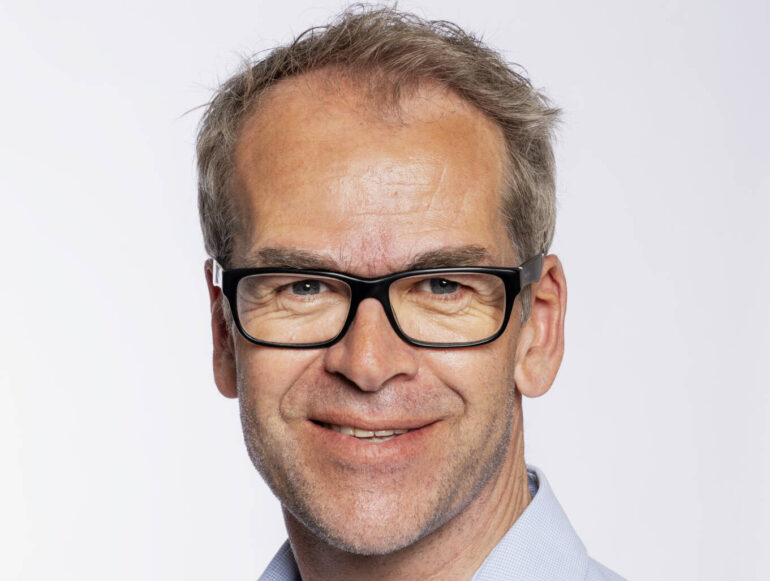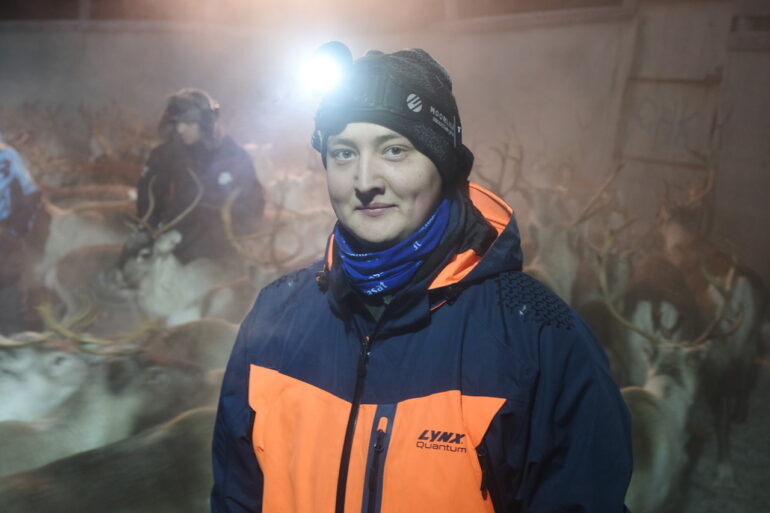Written by: Geoffrey Macnab
19.08.25
Seasoned Norwegian producer Tangen, 57, became the CEO of North Film Distribution in February. What are his observations and strategies to build successes in the Artic?
North Film Distribution was set up in the Arctic in 2023 by Mattima Films AS, Rein Film Finnmark AS, Lofoten Film Collective AS, and Hermetikken Kulturnæringshage AS to champion “films from the north”.
Over the last three decades, as CEO of Viafilm, Anders Tangen has produced or executive produced some of the biggest film and TV hits made in the Nordics, among them Lilyhammer, Home for Christmas (Hjem til jul), Norsemen(Vikingane), and EXIT Season 3. His newest project, Paul Magnus Lundø’s family film The Badgers (Grevlingene), made through 73 Eyes Film Production with producer David Leader, on which he was supervising producer, is premiering in Locarno and Haugesund. Tangen’s focus now, though, is on championing work from northern Norwegian filmmakers, including the best young Sámi talent.
It’s been six months since you started up North. What have you noticed so far?
What we see is that North is really strong on documentary. In feature films we will hopefully have a small new wave of people coming up. But in every country where you are located outside the capital, it is hard to make fiction, because it costs a lot. You need to bring actors and crew in. It will take you a day to travel here. My goal is maybe helping people to shoot a little bit cheaper, to write differently. I feel that we are making more progressive TV series than films. For cinema to survive, I think we have to try more. That is one of the reasons I took this job, to change cinema, the stories, the way we are doing it. We are so stuck in the way we are doing things. Younger people today are used to Tik-Tok. You don’t need to over-explain everything. 12 year old kids today, their reference is Squid Games.
Have you been successful in finding Sámi talent?
Two of the most promising young Sámi talents we are currently collaborating with are writer-directors Espen Larsson and Johannes Vang. In addition, we have two upcoming Sámi documentaries that are nearing release. These films are not directed or written by Larsson or Vang— one of them is not even directed by a Sámi filmmaker — but both are powerful Sámi stories. Coming up in September is Against the Wind (Mot vinden) directed by Guri G. Oppegård and produced by Karl Emil Rikardsen (Relation04 Media AS). This documentary is about a young man who inherits his family’s reindeer herd. At the same time, Norway’s largest wind power plant is being built in the grazing area. It’s actually the first film where you see what it is like to be a reindeer herder. It will have its pre-premiere in Mosjøen and selected locations in Trøndelag county. NRK has bought it, and will show it in December.
The other one, which is supported by the Nordisk Film and TV Fond, is Ellen-Astri Lundby’s Sámi versus Sámi (Lapp versus same), produced through Ten Thousand Images AS, a documentary about land rights among Northern and Southern Sámi people.
Do you find prejudice against northern and Sámi filmmakers from the media elite in Oslo?
Here’s the thing. People in the regions in Norway think everything is run by Oslo and the Norwegian Film Institute. Actually, if you are living in a region in Norway, you have local film fund support and you can still get support from Oslo. But if I live in Oslo, I only have Oslo. If you are a Sámi filmmaker, you can get funding from the International Sámi Film Institute (ISFI) and at the same time get money from the Norwegian Film Institute (NFI). If you are locally based, in theory you have a much faster way of getting support for your films than if you’re living in Oslo.
So it’s actually better to be outside Oslo?
What they [regional filmmakers] don’t know is that most of the production outfits in Oslo are owned by big international companies - so they can have development money from the big companies who own them. Actually, if you’re living up here, you can get money faster. But what has happened is that a lot of people from the north are going to Oslo because they think all the money is there. If you live in a region in the north and you travel to Oslo, you have to compete with all the big companies. You think it’s easier? That’s a myth. But I understand the need to relocate in order to be part of a larger environment. If a tax credit system — something we all want — were implemented, it could be an effective solution to this challenge.
But what about studios, facilities, etc? Do you have those in the north?
With all the local funding in Norway, you get points. They want you to have a crew from the north, post-production from the north, a local take on everything in the production. I think that is wrong. You need the best people to compete internationally. The market now is so bad that the best people (crew) who live in Oslo, they struggle. It is better to have the focus on the script writer, the director and producer in the region. The day you have a lot of production, then crew will stay locally. But there’s no work for a gaffer here, or for a DOP, or a professional costume designer.
What are the challenges with documentaries?
The challenge is that they don’t have a deadline. That’s the big problem. With TV series, we have our premiere date on the network, and so need to work faster. With documentaries, we have to help them work a little bit faster, especially in the editing, the post-production, and working out what they are trying to say, early in the development phase - is it for cinema or TV? When you work faster, the money also comes in faster.
How does it work practically? Do you at North Film have money to invest in production?
North Film Distribution is like a subsidiary of a company called Hermetikken Kulturnæringshage. We are a distribution arm. We are also an advisor. The system is that they (filmmakers) can buy hours from us and then we can help them. We can come in, analyse what their goals are, help develop scripts, look at how they can finance things, help them open doors.
Will you be executive producing these projects?
We see a lot of projects. The earlier we can come in, the earlier we can shape the projects together with the filmmakers. We try to be part of the budget. I can come in as an executive producer or as a mentor or as an advisor and help them from an early start to shape the production and also to take care of how to sell the film. The main idea was to be a distribution company for films from the North, because we see a lot of films don’t have distribution. Our long term plan is to get more and more films to succeed in cinemas.
Might you try to represent projects in the international market as well as handling them in Norway?
Yes, we can [do that], but we have to take it step by step. There are just a few of us. We don’t have a big organisation. For now, we can offer them knowledge, be part of the production budget, and get paid for that. At a later stage, we can offer them an MG if the film demonstrates the potential to perform well in cinemas. But our MG is based on hours, not on funding in the form of capital.
What’s it like living so far north?
I was here before, in the military for a year, when I was 21. But I had gotten to a point in my life where I had done everything in film and TV. I was in LA for four years, and now I’m here. For me, it’s not about being in LA or the north of Norway. It’s about meeting different kinds of people. It’s important to me to find other stories. And I loved it here! We have the midnight sun now. It’s a different way of living…and it’s really arctic, basically living in nature.

